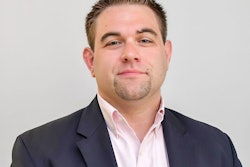 Dr. Eugene Pringle, Jr.
Dr. Eugene Pringle, Jr.
With many political shifts impacting education across the country, the decline in Black teachers and Black teacher representation will exacerbate already pressing issues of educational inequities seen in racially minoritized communities. Shifts such as funding cuts to federal programming and initiatives to diversify the teacher pipeline, which have the potential to deter pre-service and current teachers from the profession. As research has shown that Black students thrive academically and socially with Black teachers, there must be a strategic commitment to maintaining a robust pipeline that recruits, prepares, and retains Black teachers. Teacher preparation programs at HBCUs play a crucial role in developing a robust pipeline of Black teachers. From the Normal School movements to the present, they have been incubators of training teachers for the pedagogical and social movements of the time.
In alignment with many other teacher preparation programs across the country, some HBCUs are beginning to see declines in enrollment, limited access to federal funding, and institutional underfunding, further causing potential threats to their teacher preparation programs. While previously leading a teacher preparation program at an HBCU, I saw firsthand how enrollment numbers began to decline for a myriad of reasons - a trend that would persist during my tenure there. Conversations in the state legislature were almost void, not offering any promise of solutions or concerted aid to address the issue of sustaining the Black teacher pipeline through the HBCU teacher preparation programs in the state. While general conversations about all teacher preparation programs were necessary, there were little to no conversations about the role of HBCUs in the collective process of sustainability efforts. My general sentiments about the issue emphasize policy and practice measures that would intentionally and strategically prioritize and fortify HBCU teacher preparation programs as a necessary pathway to the teaching profession. Thus, championing Black teacher preparation and retention while cultivating the next generation of Black teachers.
Action must be taken to eradicate what could be the loss of 10,000 Black teachers by 2030. Such a loss impacts many and will have long-standing consequences for people from many walks of life. Many HBCU teacher preparation programs continue to lead the charge in preserving the Black teacher pipeline, but it will require collective investment through policy and funding.
Policy
One of the strongest ways to strengthen HBCU teacher pipelines is through intentional investment legislated through federal, state, and local policies. Investment in teacher preparation programs at HBCUs sets the premise for economic and social mobility - not only for teachers, but for the generations of students those teachers will serve. Lawmakers should invest in teacher preparation at HBCUs as an integral and comprehensive part of federal, state and local investment measures. As a strategy, conversations around teachers and teacher education should divest from singular conversations among lawmakers to collaborative partnerships that include HBCUs, their unique contexts, and the assertion of the need to sustain the Black teacher pipeline with HBCUs as a major lever.
Funding
To effectively sustain the Black teacher pipeline, it is crucial to address the well-documented funding inequities that have historically plagued Historically Black Colleges and Universities (HBCUs). Teacher preparation programs often receive even less funding, a critical issue that must be central to policy discussions. As policy conversations are occurring, funding must be a part of those conversations. Specifically, the expansion of investments dedicated to funding these programs. It must transcend across the educational ecosystem that makes up teacher preparation programs to include funding for:
● Faculty and staff development: To ensure educators are equipped with the latest pedagogical approaches and research.
● Continuous improvement efforts: To enhance program effectiveness and responsiveness to evolving educational needs.
● Research infrastructure: To support innovative research that strengthens teaching practices and informs policy.
● Innovations in pedagogy: To explore and implement cutting-edge teaching methods that engage and inspire future teachers.
While HBCUs prepare half of the Black teacher workforce, they are oftentimes collectively under resourced and underfunded, a broader issue impacting these institutions. While underfunding can present as just a financial issue, there are detrimental consequences that will impact America on a much larger scale to include: a potential breakdown of the Black middle class, weakened innovations in teaching students of color, a lack of cultural and social anchors in schools in racially minoritized communities, and a potential widening of the opportunity gap. As the fight for equity and justice continues, Black teachers will continue to play a major role through teaching academics and social tenants. So, while there is a necessary fiscal component, failure to invest will come with a social cost that carries great risks.
Teacher preparation programs at HBCUs are crucial to what could be the broader struggle of education in America over the course of the next 5 years and beyond. While the struggles of maintaining a robust Black teacher pipeline post Brown v. Board of Education have persisted to some degree, mounting political tensions have the propensity to upend decades of progress. HBCU teacher preparation programs are and remain a viable solution to address the Black teacher shortage. Investment in these programs is not only crucial but necessary.
___________
Dr. Eugene Pringle, Jr., is a Senior Professorial Lecturer in the School of Education at American University.

















